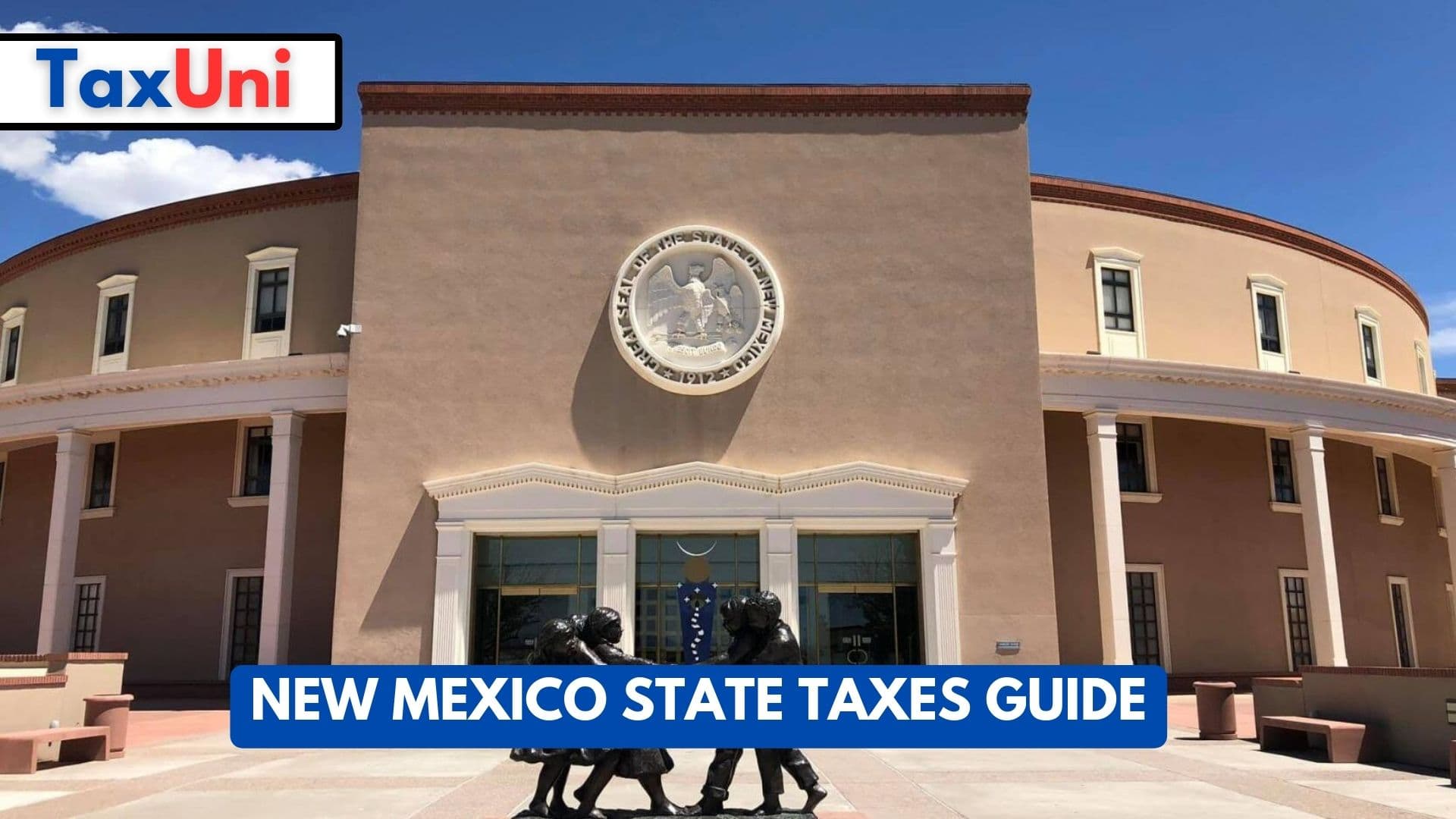New Mexico State Taxes Guide
This article provides a detailed overview of New Mexico's state tax system, including personal income tax, sales tax (known as gross receipts tax), property tax, and business tax obligations.

Contents
New Mexico has a complex tax system that includes a variety of taxes applicable to individuals and businesses alike. Personal income tax in New Mexico is progressive, meaning it increases with income, and the state imposes a gross receipts tax in place of a traditional sales tax. This gross receipts tax is applied to the sale of goods and services and is a significant revenue source for the state. Property taxes in New Mexico, while relatively low compared to many other states, are assessed by local governments and support essential services such as public schools and infrastructure.
For businesses, New Mexico imposes corporate income taxes, unemployment taxes, and specialized taxes for industries like oil and gas. Understanding the various tax types and how to comply with state tax laws is crucial for residents and business owners who want to manage their finances efficiently and avoid penalties. With a range of tax credits and deductions available to eligible taxpayers, it’s important to stay informed about the opportunities to minimize tax liability and maximize savings in New Mexico.
New Mexico Personal Income Tax
New Mexico has a progressive personal income tax system with rates that range from 1.7% to 5.9%, depending on the taxpayer’s income. The state’s income tax applies to wages, salaries, and other types of income earned by residents and income earned by nonresidents from sources within New Mexico.
- Income Tax Rates: As of 2023, New Mexico’s income tax brackets are:
- 1.7% on income up to $5,500 (single filers) or $8,000 (joint filers).
- 3.2% on income between $5,501 and $11,000 (single) or $8,001 and $16,000 (joint).
- 4.7% on income between $11,001 and $16,000 (single) or $16,001 and $24,000 (joint).
- 4.9% on income between $16,001 and $210,000 (single) or $24,001 and $315,000 (joint).
- 5.9% on income above $210,000 (single) or $315,000 (joint).
Taxpayers must file their personal income taxes with the New Mexico Taxation and Revenue Department (TRD) using Form PIT-1 for the state return. New Mexico residents are also required to report income from all sources, both within and outside the state, while nonresidents report only New Mexico-sourced income.
Deductions and Credits: New Mexico offers a variety of deductions and credits to reduce taxable income, including a Standard Deduction for filers and personal exemptions. There are also credits for low-income taxpayers, child and dependent care, and certain energy-efficient home improvements.

New Mexico Gross Receipts Tax (Sales Tax)
New Mexico does not have a traditional sales tax like many other states. Instead, it imposes a gross receipts tax (GRT), which is a tax on the total gross revenues of businesses for the sale of goods and services within the state. This tax is similar to a sales tax in that it is often passed on to the consumer, but it applies to a broader range of transactions, including services.
Gross Receipts Tax Rates
The GRT rate varies depending on the city or county where the transaction occurs. The statewide base rate is 5.125%, but local jurisdictions can impose additional rates, bringing the total GRT to 7.5% or higher in some areas.
For example:
- Santa Fe has a combined GRT rate of about 8.4375%.
- Albuquerque has a GRT rate of approximately 7.875%.
Businesses are required to collect and remit GRT on most sales of goods and services. This includes retail sales, leasing, and professional services. Certain activities, such as nonprofit activities and government transactions, may be exempt from GRT.
New Mexico Corporate Income Tax
Businesses operating in New Mexico are subject to the corporate income tax if they are structured as C-corporations or certain other entities. The corporate tax rate in New Mexico ranges from 4.8% to 5.9% based on taxable income.
Tax Brackets for Corporations
As of 2023, the corporate tax brackets are:
- 4.8% for taxable income up to $500,000.
- 5.9% for taxable income over $500,000.
Corporations doing business both within and outside of New Mexico are required to apportion their income using a single-sales factor apportionment formula, meaning that only the portion of income derived from sales in New Mexico is subject to state taxation.
Special Taxes in New Mexico
New Mexico imposes several industry-specific taxes, particularly in the energy sector, due to its rich natural resources. Some of these include:
- Oil and Gas Severance Taxes: These taxes are imposed on the extraction of natural resources, including oil and gas. The tax is calculated based on the volume or value of the resources extracted.
- Lodger’s Tax: Hotels, motels, and other lodging providers must charge a lodger’s tax on room rentals. This tax varies by jurisdiction, with rates generally ranging from 3% to 6%.

How to File and Pay Taxes in New Mexico?
Filing and paying state taxes in New Mexico is relatively straightforward thanks to the online Taxpayer Access Point (TAP), where both individuals and businesses can manage their accounts. Through TAP, users can file tax returns, make payments, check refund status, and manage tax obligations.
- Income Tax Filing: Residents and nonresidents file their PIT-1 form for personal income taxes, and any payments due must be submitted by the federal tax deadline (typically April 15).
- GRT Filing: Businesses file and pay GRT using the CRS-1 form, with due dates depending on the reporting frequency assigned by the state. Monthly filers, for example, typically have payments due on the 25th of each month.
- Property Tax: Property tax payments are made directly to the county in which the property is located, with due dates in November and April.
Common Tax Deductions and Credits in New Mexico
New Mexico offers a variety of tax credits and deductions for individuals and businesses. Some of the most commonly used credits include:
- Low-Income Comprehensive Tax Rebate (LICTR): This credit helps low-income residents offset the cost of state income taxes.
- Child and Dependent Care Credit: Families can claim this credit for expenses incurred while caring for children or other dependents.
- Renewable Energy Tax Credit: Individuals and businesses can claim credits for installing renewable energy systems like solar or wind on their property.
- Angel Investment Credit: Investors who provide capital to certain start-up businesses in New Mexico can qualify for this credit.





